32 start with M start with M
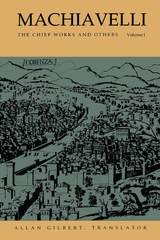
Allan Gilbert is unquestionably the most accurate and reliable translator of Machiavelli into English; the publication of this edition is an altogether happy occasion. Students of the history of political thought owe a particular debt of gratitude to Allan Gilbert.”—Dante Germino, The Journal of Politics
“A most remarkable achievement.”—Felix Gilbert, Renaissance Quarterly
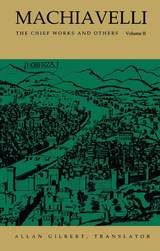
Allan Gilbert is unquestionably the most accurate and reliable translator of Machiavelli into English; the publication of this edition is an altogether happy occasion. Students of the history of political thought owe a particular debt of gratitude to Allan Gilbert.”—Dante Germino, The Journal of Politics
“A most remarkable achievement.”—Felix Gilbert, Renaissance Quarterly
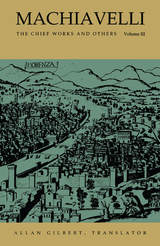
Allan Gilbert is unquestionably the most accurate and reliable translator of Machiavelli into English; the publication of this edition is an altogether happy occasion. Students of the history of political thought owe a particular debt of gratitude to Allan Gilbert.”—Dante Germino, The Journal of Politics
“A most remarkable achievement.”—Felix Gilbert, Renaissance Quarterly
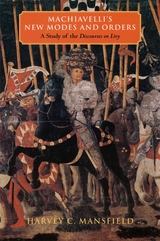
Mansfield's aim is to discern Machiavelli's intention in writing the book: he argues that Machiavelli wanted to introduce new modes and orders in political philosophy in order to make himself the founder of modern politics. Mansfield maintains that Machiavelli deliberately concealed part of his intentions so that only the most perceptive reader could see beneath the surface of the text and understand the whole of his book. Previously out of print, Mansfield's penetrating study brings to light the hidden thoughts lurking in the details of the Discourses on Livy to inform and challenge its readers at every step along the way.
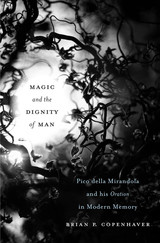
“This book is nothing less than the definitive study of a text long considered central to understanding the Renaissance and its place in Western culture.”
—James Hankins, Harvard University
Pico della Mirandola died in 1494 at the age of thirty-one. During his brief and extraordinary life, he invented Christian Kabbalah in a book that was banned by the Catholic Church after he offered to debate his ideas on religion and philosophy with anyone who challenged him. Today he is best known for a short speech, the Oration on the Dignity of Man, written in 1486 but never delivered. Sometimes called a “Manifesto of the Renaissance,” this text has been regarded as the foundation of humanism and a triumph of secular rationality over medieval mysticism.
Brian Copenhaver upends our understanding of Pico’s masterwork by re-examining this key document of modernity. An eminent historian of philosophy, Copenhaver shows that the Oration is not about human dignity. In fact, Pico never wrote an Oration on the Dignity of Man and never heard of that title. Instead he promoted ascetic mysticism, insisting that Christians need help from Jews to find the path to heaven—a journey whose final stages are magic and Kabbalah. Through a rigorous philological reading of this much-studied text, Copenhaver transforms the history of the idea of dignity and reveals how Pico came to be misunderstood over the course of five centuries. Magic and the Dignity of Man is a seismic shift in the study of one of the most remarkable thinkers of the Renaissance.
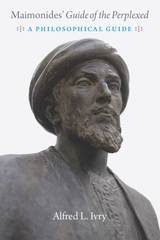
Drawing on a lifetime of study, Alfred L. Ivry has written the definitive guide to the Guide—one that makes it comprehensible and exciting to even those relatively unacquainted with Maimonides’ thought, while also offering an original and provocative interpretation that will command the interest of scholars. Ivry offers a chapter-by-chapter exposition of the widely accepted Shlomo Pines translation of the text along with a clear paraphrase that clarifies the key terms and concepts. Corresponding analyses take readers more deeply into the text, exploring the philosophical issues it raises, many dealing with metaphysics in both its ontological and epistemic aspects.
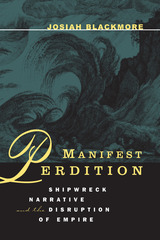

In Maps in Tudor England, P. D. A. Harvey traces this revolution of production, understanding, and use of maps in England from 1485 to 1603. By the mid-sixteenth century, mapmapers had begun to draw maps to a consistent scale, reproducing the results of measured survey. By the end of the century, maps drawn to scale and showing features by conventional signs were commonly used throughout England.
In this survey Harvey focuses on maps of small areas, up to the size of a county, exploring their impact on the political and social life of England in the spheres of the military, government, towns, landed estates, buildings, and the law. Richly illustrated with thirty color and fifty black and white reproductions of rare maps, his account is an informative and accessible introduction to this revolutionary period in the history of cartography, as well as a unique visual history of Tudor England.

Stoic musings of a philosopher-emperor at war.
Marcus Aurelius (AD 121–180), Roman emperor and Stoic philosopher, born at Rome, received training under his guardian and uncle emperor Antoninus Pius (reigned 138–161), who adopted him. He was converted to Stoicism and henceforward studied and practiced philosophy and law. A gentle man, he lived in agreement and collaboration with Antoninus Pius. He married Pius’ daughter and succeeded him as emperor in March 161, sharing some of the burdens with Lucius Verus.
Marcus’ reign soon saw fearful national disasters from flood, earthquakes, epidemics, threatened revolt (in Britain), a Parthian war, and pressure of barbarians north of the Alps. From 169 onwards he had to struggle hard against the German Quadi, Marcomani, Vandals, and others until success came in 174. In 175 (when Faustina died) he pacified affairs in Asia after a revolt by Avidius. War with Germans was renewed during which he caught some disease and died by the Danube in March 180.
The famous Meditations of Marcus Aurelius (not his title; he simply calls them “The matters addressed to himself”) are reflections written in periods of solitude during the emperor’s military campaigns. Originally intended for his private guidance and self-admonition, the Meditations have endured as a potent expression of Stoic belief. It is a central text for students of Stoicism as well as a unique personal guide to the moral life.
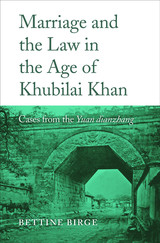
The Mongol conquest of China in the thirteenth century and Khubilai Khan’s founding of the Yuan dynasty brought together under one government people of different languages, religions, and social customs. Chinese law evolved rapidly to accommodate these changes, as reflected in the great compendium Yuan dianzhang (Statutes and Precedents of the Yuan Dynasty). The records of legal cases contained in this seminal text, Bettine Birge shows, paint a portrait of medieval Chinese family life—and the conflicts that arose from it—that is unmatched by any other historical source.
Marriage and the Law in the Age of Khubilai Khan reveals the complex, sometimes contradictory inner workings of the Mongol-Yuan legal system, seen through the prism of marriage disputes in chapter eighteen of the Yuan dianzhang, which has never before been translated into another language. Birge’s meticulously annotated translation clarifies the meaning of terms and passages, some in a hybrid Sino-Mongolian language, for specialists and general readers alike. The text includes court testimony—recorded in the vivid vernacular of people from all social classes—in lawsuits over adultery, divorce, rape, wife-selling, marriages of runaway slaves, and other conflicts. It brings us closer than any other source to the actual Mongolian speech of Khubilai and the great khans who succeeded him as they struggled to reconcile very different Mongol, Muslim, and Chinese legal traditions and confront the challenges of ruling a diverse polyethnic empire.


The first comprehensive edition and translation of Old English writings on health and healing in more than 150 years.
Unlike elsewhere in Europe, vernacular writings on health and healing had a major place in early medieval England. These texts—unique local remedies and translations of late antique Latin treatises—offer insights into the history of science and medicine, social history, scribal practices, and culture. Some cures resemble ones still used today; others are linguistically extravagant, prescribing ambitious healing practices. Alongside recipes for everyday ailments such as headaches are unparalleled procedures for preventing infant mortality, restoring lost cattle, warding off elf-shot, or remedying the effects of flying venom.
Medical Writings from Early Medieval England presents the first comprehensive edition and translation from Old English of these works in more than 150 years. Volume I includes The Old English Herbal, Remedies from Animals, Lacnunga, the Peri Didaxeon, and a compendium of miscellaneous texts.

Throughout the Middle Ages, Christians wrote about Islam and the life of Muhammad. These stories, ranging from the humorous to the vitriolic, both informed and warned audiences about what was regarded as a schismatic form of Christianity. Medieval Latin Lives of Muhammad covers nearly five centuries of Christian writings on the prophet, including accounts from the farthest-flung reaches of medieval Europe, the Iberian Peninsula, and the Byzantine Empire. Over time, authors portrayed Muhammad in many guises, among them: Theophanes’s influential ninth-century chronicle describing the prophet as the heretical leader of a Jewish conspiracy; Embrico of Mainz’s eleventh-century depiction of Muhammad as a former slave who is manipulated by a magician into performing unholy deeds; and Walter of Compiègne’s twelfth-century presentation of the founder of Islam as a likable but tricky serf ambitiously seeking upward social mobility.
The prose, verse, and epistolary texts in Medieval Latin Lives of Muhammad help trace the persistence of old clichés as well as the evolution of new attitudes toward Islam and its prophet in Western culture. This volume brings together a highly varied and fascinating set of Latin narratives and polemics never before translated into English.
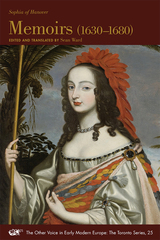

Socrates without Plato.
Xenophon (ca. 430 to ca. 354 BC), a member of a wealthy but politically quietist Athenian family and an admirer of Socrates, left Athens in 401 BC to serve as a mercenary commander for Cyrus the Younger of Persia, then joined the staff of King Agesilaus II of Sparta before settling in Elis and, in the aftermath of the battle of Leuctra in 371 BC, retiring to Corinth. His historical and biographical works, Socratic dialogues and reminiscences, and short treatises on hunting, horsemanship, economics, and the Spartan constitution are richly informative about his own life and times.
This volume collects Xenophon’s portrayals of his associate, Socrates. In Memorabilia (or Memoirs of Socrates) and in Oeconomicus, a dialogue about household management, we see the philosopher through Xenophon’s eyes. Here, as in the accompanying Symposium, we also obtain insight on life in Athens. The volume concludes with Xenophon’s Apology, an interesting complement to Plato’s account of Socrates’ defense at his trial.

Exemplary wisdom from ancient Rome.
Valerius Maximus compiled his handbook of notable deeds and sayings during the reign of Tiberius (AD 14–37). The collection was admired in antiquity and has recently been attracting renewed scholarly attention. Yet to date there has been no modern English translation of Memorable Doings and Sayings. This work is now added to the Loeb Classical Library, in two volumes, a freshly edited Latin text facing D. R. Shackleton Bailey’s pleasing and authoritative translation.
Valerius arranges his instructive examples in short chapters, each focused on a particular virtue, vice, religious practice, or traditional custom—including Omens, Dreams, Anger, Cruelty, Bravery, Fidelity, Gratitude, Friendship, Parental Love. The moral undercurrent of this collection is readily apparent. But Valerius tells us that the book’s purpose is simply practical: he decided to select worthwhile material from famous writers so that people looking for illustrative examples might be spared the trouble of research. Whatever the author’s intention, his book is an interesting source of information on Roman attitudes toward religion and moral values in the first century.

Exemplary wisdom from ancient Rome.
Valerius Maximus compiled his handbook of notable deeds and sayings during the reign of Tiberius (AD 14–37). The collection was admired in antiquity and has recently been attracting renewed scholarly attention. Yet to date there has been no modern English translation of Memorable Doings and Sayings. This work is now added to the Loeb Classical Library, in two volumes, a freshly edited Latin text facing D. R. Shackleton Bailey’s pleasing and authoritative translation.
Valerius arranges his instructive examples in short chapters, each focused on a particular virtue, vice, religious practice, or traditional custom—including Omens, Dreams, Anger, Cruelty, Bravery, Fidelity, Gratitude, Friendship, Parental Love. The moral undercurrent of this collection is readily apparent. But Valerius tells us that the book’s purpose is simply practical: he decided to select worthwhile material from famous writers so that people looking for illustrative examples might be spared the trouble of research. Whatever the author’s intention, his book is an interesting source of information on Roman attitudes toward religion and moral values in the first century.

How to write a speech in ancient Greek.
This volume contains three rhetorical treatises dating probably from the reign of Diocletian (AD 285–312) that provide instruction on how to compose epideictic (display) speeches for a wide variety of occasions both public and private. Two are attributed to one Menander Rhetor of Laodicea (in southwestern Turkey); the third, known as the Ars Rhetorica, incorrectly to the earlier historian and literary critic Dionysius of Halicarnassus. These treatises derive from the schools of rhetoric that flourished in the Roman Empire from the second through fourth centuries AD in the Greek East. Although important examples of some genres of occasional prose were composed in the fifth and fourth centuries BC by Thucydides, Xenophon, Plato, and especially Isocrates, it was with the flowering of rhetorical prose during the so-called Second Sophistic in the second half of the second century AD that more forms were developed as standard repertoire and became exemplary.
Distinctly Hellenic and richly informed by the prose and poetry of a venerable past, these treatises are addressed to the budding orator contemplating a civic career, one who would speak for his city’s interests to the Roman authorities and be an eloquent defender of its Greek culture and heritage. They provide a window into the literary culture, educational values and practices, and social concerns of these Greeks under Roman rule, in both public and private life, and considerably influenced later literature both pagan and Christian.
This edition offers a fresh translation, ample annotation, and texts based on the best critical editions.
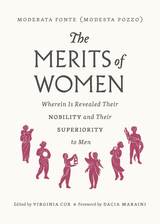
Without help from their wives, men are just like unlit lamps . . .
Just think of them as an unreliable clock that tells you it’s ten o’clock when it’s in fact barely two . . .
A man without a woman is like a fly without a head . . .
These are but a small selection of the quips bandied about at this lively gathering of women. The broad topic at hand is the relative pros and cons of men, and the cases in point range from pick-up artists to locker-room talk, and from double standards to fragile masculinity.
Yet this dialogue unfolds not among ironically misandrist millenials venting at their local dive bar, but rather among sixteenth-century women—variously married, widowed, single, and betrothed—attending a respectable Venice garden party. Written in the early 1590s by Moderata Fonte, pseudonym of the Renaissance poet and writer Modesta Pozzo, this literary dialogue interrogates men and men’s treatment of women, and explores by contrast the virtues of singledom and female friendship. As the women diverge from their theme—discussing everything from astrology to the curative powers of plants and minerals—a remarkable group portrait of wisdom, wit, and erudition emerges.
A new introduction by translator Virginia Cox and foreword by Dacia Maraini situate The Merits of Women in its historical context, written as it was on the cusp of Shakespeare’s heyday, and straddling the centuries between the feminist works of Christine de Pizan and Mary Wollstonecraft. Elegantly presented for a general audience, this is a must-read for baby feminists and “nasty women” alike, not to mention the perfect subtle gift for any mansplaining friend who needs a refresher on the merits of women . . . and their superiority to men.
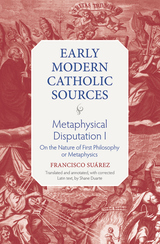
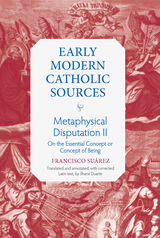
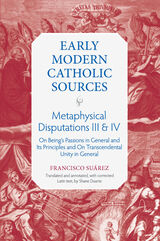
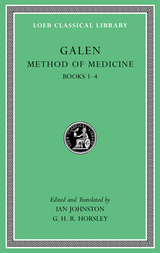
Antiquity’s most prolific and influential medical writer and practitioner.
Galen of Pergamum (129–?199/216), physician to the court of the emperor Marcus Aurelius, was a philosopher, scientist, and medical historian, a theoretician and practitioner, who wrote forcefully and prolifically on an astonishing range of subjects and whose impact on later eras rivaled that of Aristotle. Galen synthesized the entirety of Greek medicine as a basis for his own doctrines and practice, which comprehensively embraced theory, practical knowledge, experiment, logic, and a deep understanding of human life and society.
Method of Medicine is a systematic and comprehensive account of the principles of treating injury and disease and one of Galen’s greatest and most influential works. Enlivening the detailed case studies are many theoretical and polemical discussions, acute social commentary, and personal reflections. The Loeb Method of Medicine is in three volumes.
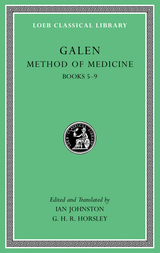
Antiquity’s most prolific and influential medical writer and practitioner.
Galen of Pergamum (129–?199/216), physician to the court of the emperor Marcus Aurelius, was a philosopher, scientist, and medical historian, a theoretician and practitioner, who wrote forcefully and prolifically on an astonishing range of subjects and whose impact on later eras rivaled that of Aristotle. Galen synthesized the entirety of Greek medicine as a basis for his own doctrines and practice, which comprehensively embraced theory, practical knowledge, experiment, logic, and a deep understanding of human life and society.
Method of Medicine is a systematic and comprehensive account of the principles of treating injury and disease and one of Galen’s greatest and most influential works. Enlivening the detailed case studies are many theoretical and polemical discussions, acute social commentary, and personal reflections. The Loeb Method of Medicine is in three volumes.
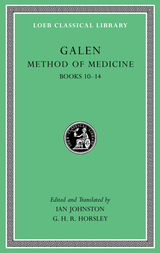
Antiquity’s most prolific and influential medical writer and practitioner.
Galen of Pergamum (129–?199/216), physician to the court of the emperor Marcus Aurelius, was a philosopher, scientist, and medical historian, a theoretician and practitioner, who wrote forcefully and prolifically on an astonishing range of subjects and whose impact on later eras rivaled that of Aristotle. Galen synthesized the entirety of Greek medicine as a basis for his own doctrines and practice, which comprehensively embraced theory, practical knowledge, experiment, logic, and a deep understanding of human life and society.
Method of Medicine is a systematic and comprehensive account of the principles of treating injury and disease and one of Galen’s greatest and most influential works. Enlivening the detailed case studies are many theoretical and polemical discussions, acute social commentary, and personal reflections. The Loeb Method of Medicine is in three volumes.
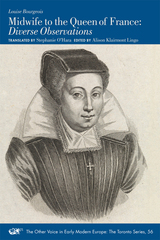

The first English translation of the earliest Latin poems about miracles performed by the Virgin Mary, composed in twelfth-century Canterbury by a Benedictine monk who inspired Chaucer.
Nigel (ca. 1135–1198), a Benedictine monk at Christ Church in Canterbury, is best known for The Mirror of Fools—a popular satire whose hero Burnellus the Ass is referenced in Chaucer’s Canterbury Tales. Nigel’s oeuvre also includes other important poems and hagiography.
The Miracles of the Virgin is the oldest Latin poem about miracles performed by Mary. This collection features seventeen lively tales in which the Virgin rescues a disappointed administrator from a pact with the devil, has a Roman emperor killed by a long-dead martyr, saves a Jewish boy from being burned alive, and shields an abbess from the shame of pregnancy. Each story illustrates the boundlessness of Mary’s mercy. In the Tract on Abuses, a letter that resembles a religious pamphlet, Nigel rails against ecclesiastical corruption and worldly entanglements.
Alongside authoritative editions of the Latin texts, this volume offers the first translations of both works into English.


An influential medieval allegorical interpretation of the Metamorphoses that uncovers the hidden moral truths of Ovid’s stories, translated into English for the first time.
Written in about 1340 in Avignon by the Benedictine preacher Pierre Bersuire, The Moralized Ovid—commonly referred to by its Latin title, Ovidius moralizatus, to distinguish it from the anonymous French vernacular Ovide moralisé—was arguably the most influential interpretation of Ovid’s Metamorphoses in the High Middle Ages. It circulated widely in manuscript form and was frequently printed during the Renaissance. Originally intended as a sourcebook of exempla for preachers’ sermons, The Moralized Ovid provides not only a window into the reception of classical literature in the fourteenth century but also amazingly vivid details of daily life in the Middle Ages across all strata of society.
The work begins with a detailed description of the Greco-Roman gods, inspired in part by Bersuire’s friend and fellow proponent of classical poetry, Francesco Petrarch. It then retells selected major myths from Ovid’s Metamorphoses, each followed by numerous allegorical interpretations that draw from biblical stories, contemporary events, and the natural world.
This edition presents the first full English translation alongside an authoritative Latin text.
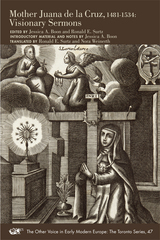
Juana de la Cruz (1481–1534) is a unique figure in the history of the Catholic Church, thanks to her public visionary experiences during which she lost consciousness, while a deep voice, identifying itself as Christ, issued from her, narrating the feasts and pageants taking place in heaven. Juana’s so called “sermons,” collected in a manuscript called Libro del Conorte, form a fascinating window into Castilian religiosity in the early sixteenth century. There is much to reap from these sermons concerning Spanish Renaissance culture, theology, mysticism, gender roles, and interreligious interactions.
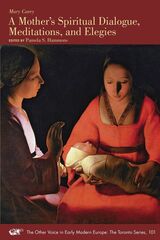
Lady Mary Carey (c. 1609–c. 1680) was a noblewoman who examined her life and expressed her views in a handwritten manuscript that she intended for self-reflection and for sharing with restricted audiences of family and friends, rather than for print publication. Her poetry and prose, composed and revised between 1650 and 1658, were important enough to her inner circle, however, that her autograph manuscript was carefully copied by another hand in 1681. In addition to providing us with key insights into women’s multidimensional roles as wives, widows, and mothers during the seventeenth century in England, Carey’s work teaches us a great deal about a woman’s deepest emotional and spiritual states while confronting the hardships of life—from the fears of childbearing to the sorrows over child loss to the terrors of war.
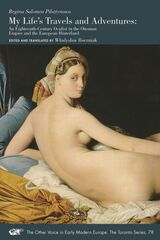
This edition brings the entirety of this personal and idiosyncratic memoir to English for the first time.
READERS
Browse our collection.
PUBLISHERS
See BiblioVault's publisher services.
STUDENT SERVICES
Files for college accessibility offices.
UChicago Accessibility Resources
home | accessibility | search | about | contact us
BiblioVault ® 2001 - 2024
The University of Chicago Press









